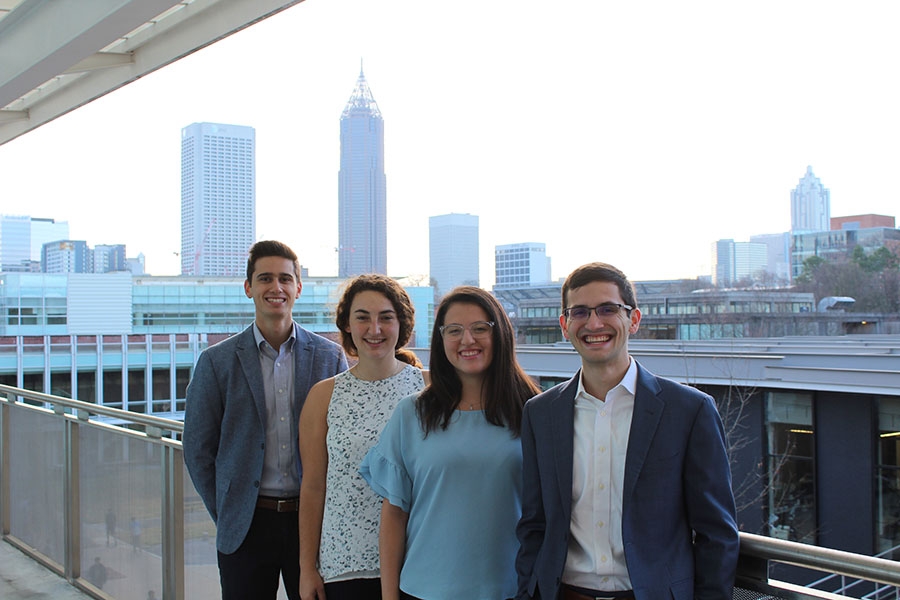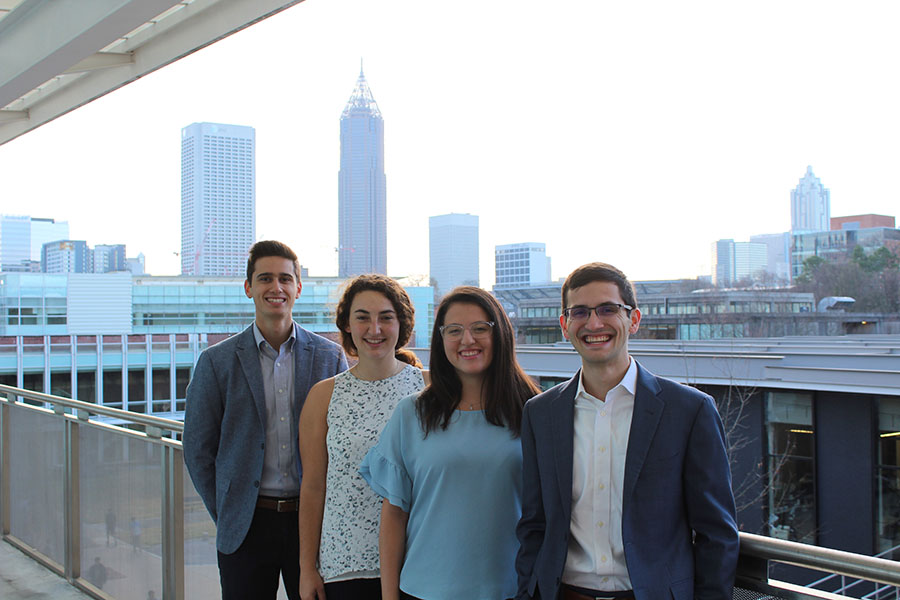
 |
| The River Recon team is comprised of environmental engineering graduates Matthew Falcone, Kaylyn Sinisgalli and Erin Kowalsky along with mechanical engineering graduate Timothy Purvis. |
A team from Georgia Tech has won the Grand Challenge Award from the American Society of Civil Engineer’s Innovation Contest with a concept that could change the way engineers detect microplastics in water.
The award is the latest accomplishment for the recent Tech graduates, who began working on their innovative device called River Recon as a senior design project and are now in the process of filing a patent for their prototype.
The multidisciplinary River Recon team won a $5,000 prize and bested more than 50 other teams who competed for the honor. Developed as part of the ASCE Grand Challenge, the Innovation Contest this year invited finalists to showcase their innovations before an international audience through a virtual competition. The award was announced during the ASCE 2020 Virtual Convention on Oct. 30.
The River Recon team is comprised of environmental engineering graduates Matthew Falcone, Erin Kowalsky, and Kaylyn Sinisgalli along with mechanical engineering graduate Timothy Purvis.
“We are very grateful to have been selected for this award at the ASCE Innovation Contest,” said Falcone on behalf of his team. “The award will help provide funding to further develop our prototype, as well as help pay for any legal fees associated with patent filing.
“Overall, the competition was an amazing opportunity to get to meet some incredible contestants, coaches and judges. We have really appreciated the advice and guidance we have received from others along the way.”
Among those who helped guide the team is Professor John E. Taylor, the School’s associate chair for graduate programs and research innovation.
Taylor was introduced to the River Recon team through Timothy Purvis, who was a student in Taylor’s Innovation and Entrepreneurship for Civil Engineering Systems course, offered for the first time in the School of Civil and Environmental Engineering during the Spring 2020 semester.
Taylor said he recognized that the River Recon team had an idea that was both novel and important, and he wanted to help them protect it. He worked with the team to move quickly to get a provisional patent filed before their public presentation at the ASCE competition to preserve their right to a patent after public disclosure.
“This team is proof of how powerful it is when you integrate computing and innovation into the CEE curriculum,” Taylor said. “They developed a novel machine learning algorithm to detect microplastics in river water, illustrating how our graduates are using technology to address the grand challenges facing society and the environment.”
The River Recon team set out to create their detection device because there are currently no effective methods for quantifying microplastics in water—making it difficult to understand the full extent of this emerging environmental contaminant. Plastic waste breaks up into microscopic pieces that are not visible to the human eye. These tiny pieces—at less than 5 millimeters along their longest dimension— are harmful to both the environment and human health.
River Recon’s portable device was designed to test water from continuous streams of water, like rivers, using fluorescence to identify the microplastics.
The team was selected as the best project from the School of Civil and Environmental Engineering during the Spring 2020 Capstone Design Expo.
